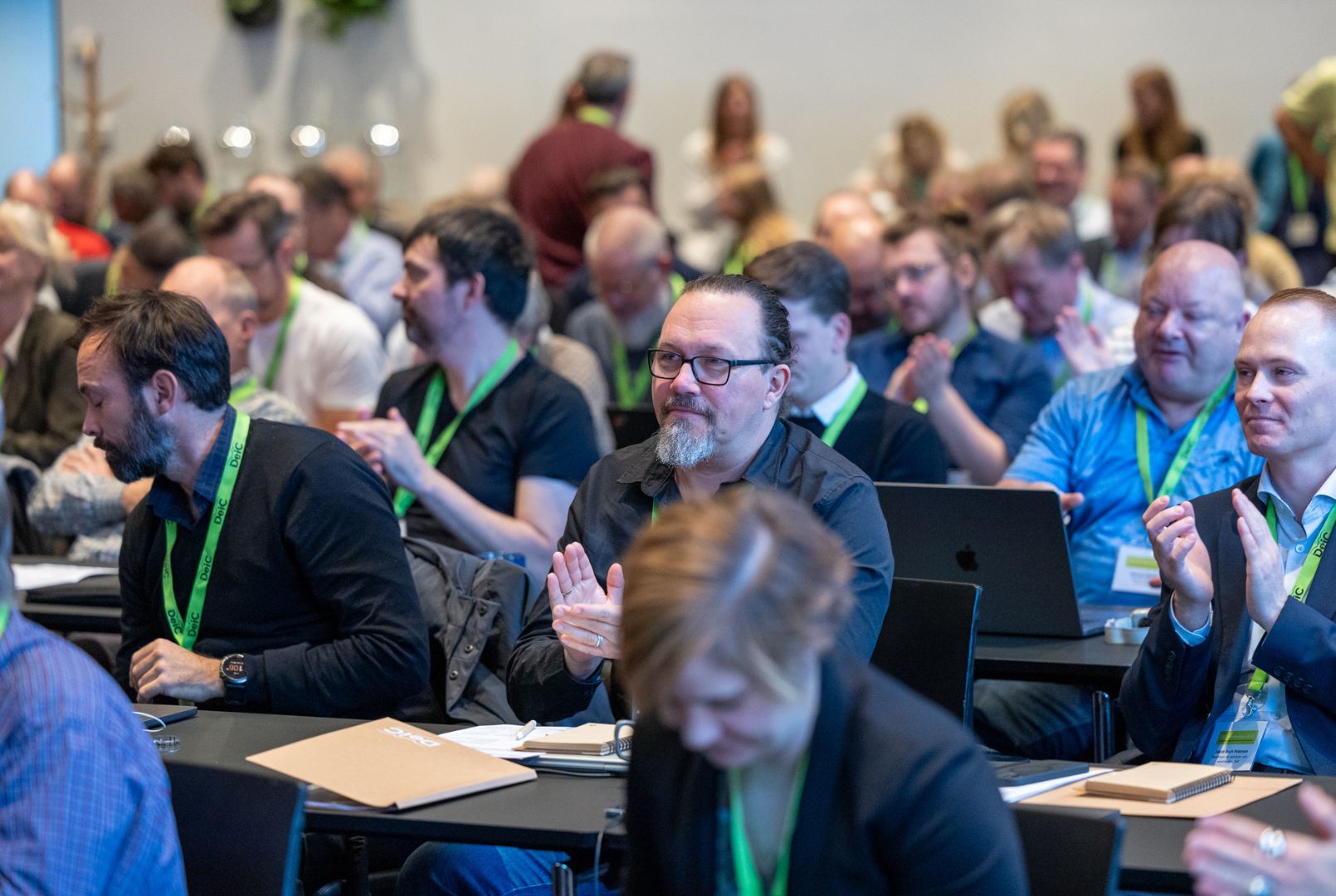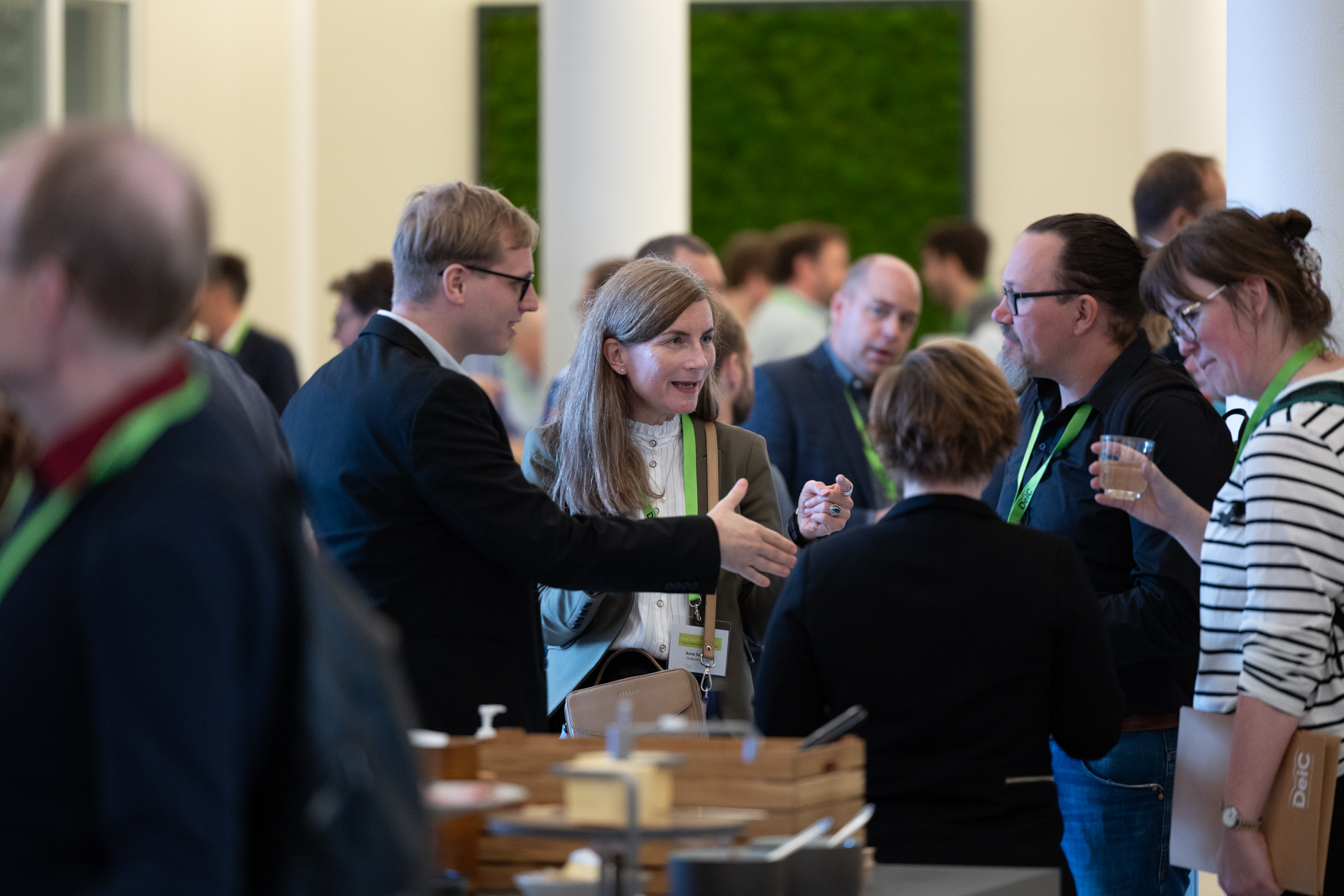DeiC Milestones
2012
DeiC (Danish e-infrastructure Cooperation) was established under the Ministry of Higher Education and Science by Act No. 70 of April 19, 2012. The official name in the act was Danish e-Infrastructure Cooperation. The aim was to consolidate activities within networks and supercomputers, which were previously managed by the Research Network and DCSC.
2018
The background for the new organization was a strategy developed in collaboration between the Ministry of Higher Education and Science and the universities, which was published in late 2018, titled “Strategy for National Collaboration on Digital Research Infrastructure.” This strategy led to several changes in DeiC's mandate and tasks.
2023
The current organization received its legal framework on July 1, 2023, through the executive order BEK 615 of 26 May 2023 (in Danish). Simultaneously, the organization’s name was changed from Danish e-Infrastructure Cooperation to Danish e-infrastructure Consortium, while retaining DeiC as the common name. DeiC's task is to develop and coordinate the collaboration on digital research infrastructure among the universities.
The Research Network
The first IT systems at universities were placed in regional computing centers:
- NEUCC (Northern Europe University Computing Center) at DTU in Lyngby from 1965
- RECKU (The Regional Computing Center at the University of Copenhagen) from 1970
- RECAU (The Regional Computing Center at Aarhus University) from 1971
These three centers merged into UNI-C in 1985.
From around 1984, universities began connecting their local networks so they could communicate with each other. This was done via bridges, which were initially connected through Ethernet on one side and a dedicated teleline on the other.
Over time, the architecture was enhanced with routers using the TCP/IP protocol family. As a result, UNI-C operated the first major network in Denmark based on the technology used by the internet. This network, known as DENET, was also connected to the internet.
Later, these activities were organized under the name Research Network, which has been user-financed via a state budget account since 2003. Until the establishment of DeiC in 2012, the Research Network was managed by a network secretariat under DTU, while operations were outsourced to UNI-C.
Supercomputers
A supercomputer is a computer for scientific calculations that is more powerful than regular computers. By this loose definition, the first computer at NEUCC can be considered Denmark's first supercomputer. It was an IBM 7090, which upon delivery in July 1965, doubled Denmark's total computing capacity.
The first true supercomputer under UNI-C was an Amdahl VP1100 vector processor, acquired in 1987. Vector processors are specialized computers for fast computation with many identical operations in each computation step on long sequences of numbers (vectors).
UNI-C operated several supercomputers located in Lyngby, accessible to researchers via the Research Network.
In 2001, DCSC (Danish Center for Scientific Computing) was established. Unlike UNI-C's centralized organization, DCSC was decentralized, distributing funds to establish computing power at individual universities. The prevailing technology was now grid computing, where many standard equipment-based computers are linked in a high-speed network. To promote this development, the Danish Centre for Grid Computing (DCGC) operated from 2003 to 2007. In 2008, DCSC and DCGC merged.
Upon the establishment of DeiC, 50 million DKK from the state budget for research infrastructure were transferred. These funds were used to establish DeiC’s three national supercomputers. DeiC’s national supercomputers are located at and in collaboration with individual universities and institutions but are accessible to all researchers at Danish universities and research institutions, thus representing a combined central/decentral model.
Data Management and Competence Center
In April 2011, the Agency for Science and Innovation published the result of six professional panels' recommendations for future research infrastructure needs across various fields. This work resulted in a Danish roadmap for research infrastructure.
According to the roadmap, DeiC was to be established as a merger of DCSC and the Research Network. Additionally, a national competence center was to be established under DeiC to spread knowledge about eScience. During the process of defining the framework for DeiC, it was decided that the organization would also handle research data management.
Further information
- Act No. 70, 2012, Ministry of Research, Innovation, and Higher Education (PDF) (in Danish)
- “Ahead for 40 Years,” UNI-C Jubilee 1965-2005 (in Danish)





